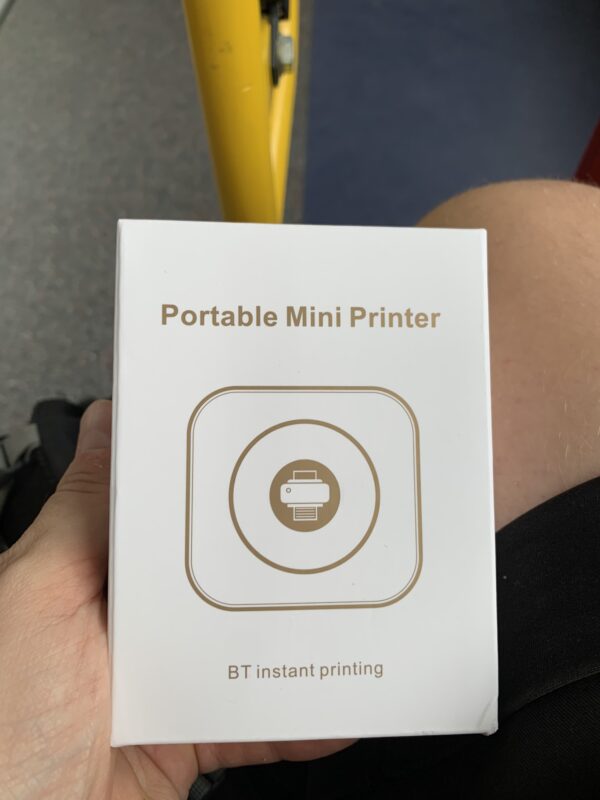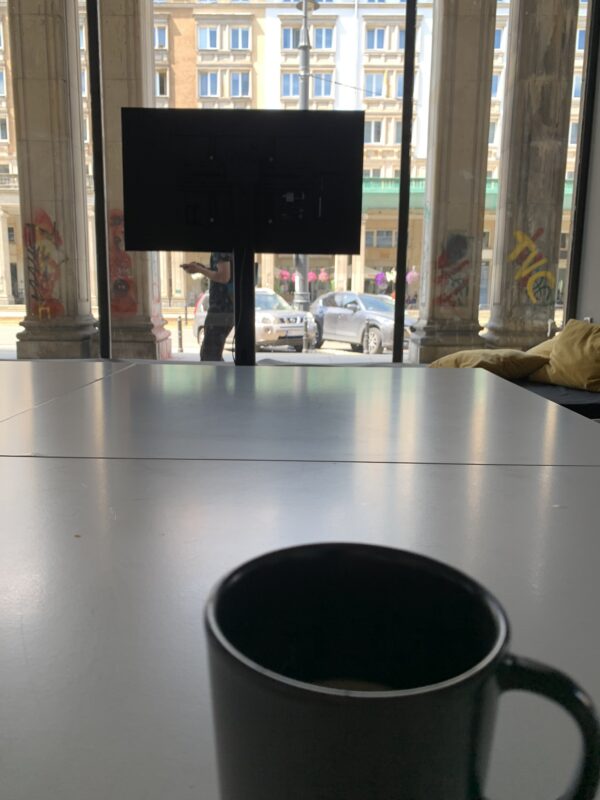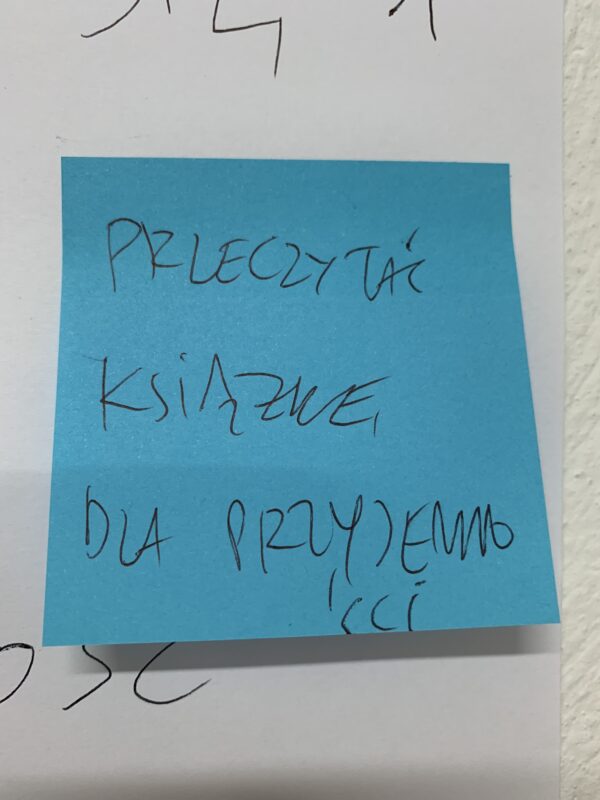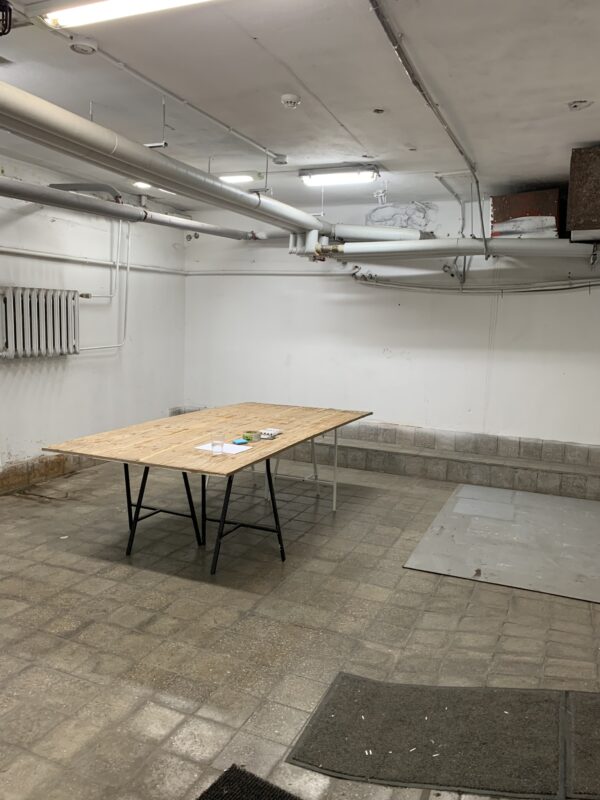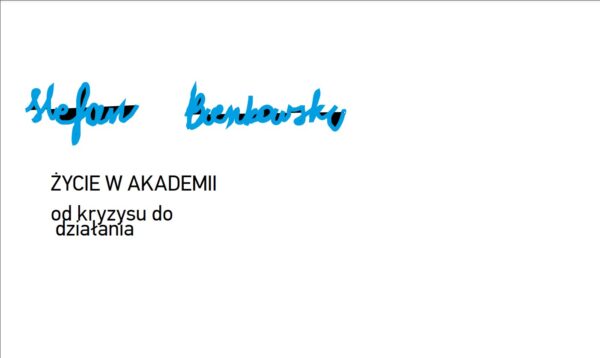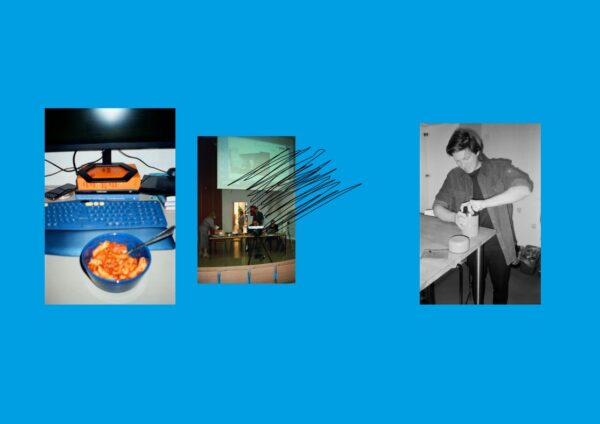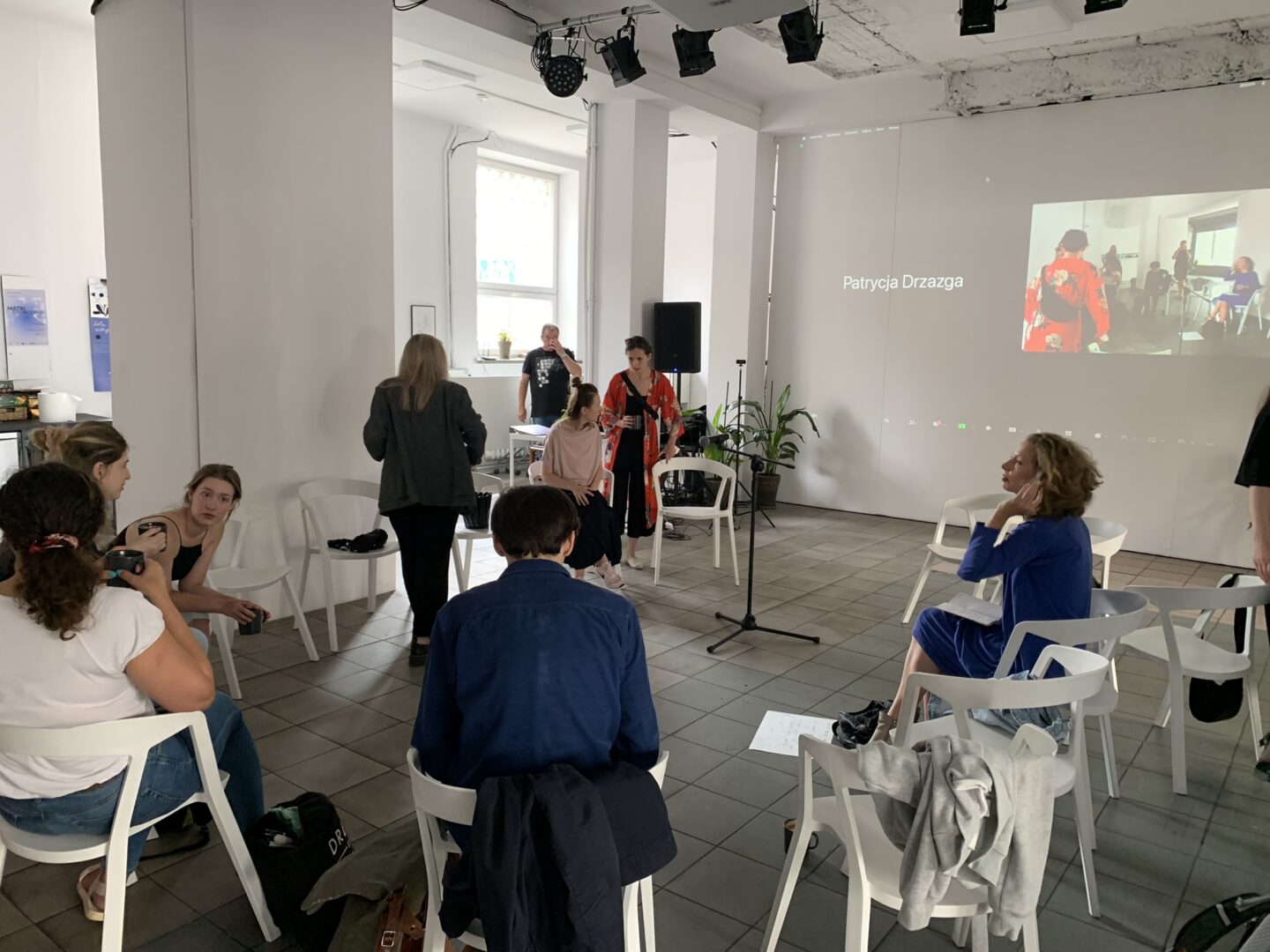Stefan Bieńkowski
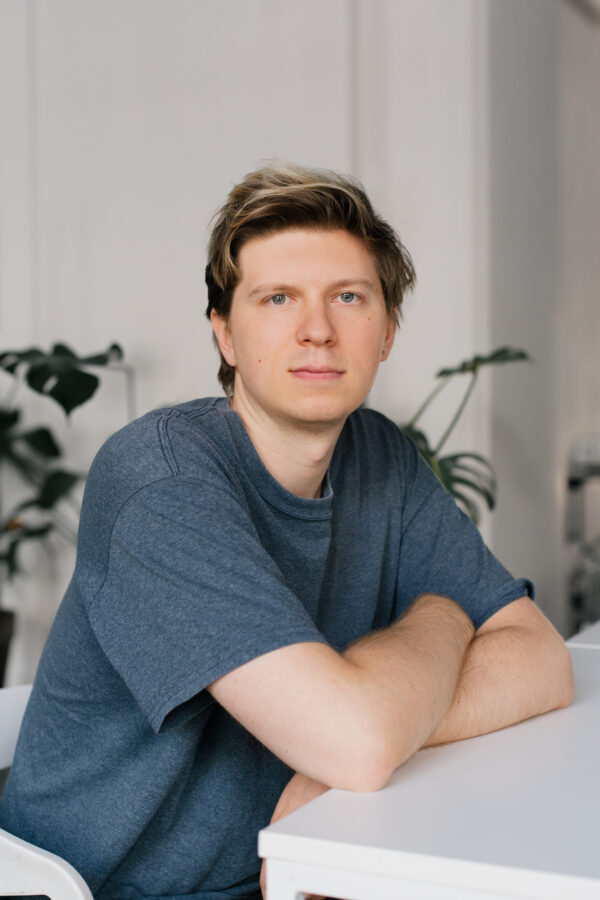
Looking for an outlet for observations from my ongoing research in Sociology, I would like to translate my existing work into the field of art. The subject of my PhD dissertation is care work and I study the work experience of caregivers of older people. During the analysis I realised that the scientific knowledge production did not allow me to work with the emotional dimension of the collected material and with my own emotions. In 2023 I began translating scientific material into other forms of expression. In autumn, in a collective action with Maria Oblicka, we produced an exhibition about work from the perspective of love and care, which was shown at the Przyszła Niedoszła Gallery. Based on excerpts from the interviews I conducted for my research, I started to work on a play about care work. I am considering creating a series of prints on the subject and creating a circle of support for caregivers. As part of the residency I would like to be able to look at these and other ideas at a distance and be supported in selecting one of the projects for further development.
I am a sociologist and artist working on precarious employment and care work. I am working on my PhD in Sociology at the University of Warsaw, and I am involved in a Fax-collective with which I talk about labour of love, care and social reproduction. I am pursuing a combination of art and science. Academically, I am working on a project on class mobility at SWPS University. Before that, I was involved in projects on precarious employment and peanut pensions at the Institute of Philosophy and Sociology of the Polish Academy of Sciences. In 2023,together with Maria Oblicka, I co-produced an exhibition at the Przyszła Niedoszła gallery entitled 3 Rooms with Care addressing the topic of care work. I have published in academic and non-academic journals. I graduated from the Interdepartmental Individual Studies in the Humanities programme at the University of Warsaw and from the Faculty of Industrial Design at the Academy of Fine Arts.
Stefan’s residency is summarised in a journal in the form of a short zine. Each Warsaw Observatory of Culture (WOK) residency has a unique dimension, and the participants’ personal accounts of their experiences reflect this diversity.
How to act
I applied for the residency because I needed to bring order to the chaos. With this in mind, we decided that the first step should be creating a space that would allow me to start the process of ‘decluttering’. This meant physically separating it from other activities that, in my unstructured daily academic and paid work, flooded me non-stop and left no room for different and new activities of a more creative nature.
Initially, I sought a formula for work without work and residency without production. This section should be about the search for a form, first and foremost, a process formula. I think this is the key question that all subsequent activities I undertook during the residency can answer.
The underlying question is how to act in harmony with oneself in a different way than before, in a way that opens up rather than shuts down and makes the activity pleasant.
A breakthrough in the break
In October and November, the last two months of the residency, I began doing things while I paused and searched for answers in the initial period. I did this in what I believe to be a sustainable way.
It all happened as part of my coaching process, where we had sessions, introduced tools, discussed the different activities I was involved in, and set priorities. We met almost every week, and the sessions were pivotal for me. Without them, the residency would have just been a pause, which is why it became a breakthrough.
In my case, I came to WOK without specific expectations, and to have such tool was invaluable. It was also very valuable that you mentioned it in the very first meetings. I think it would be helpful for future residencies to provide a list of the tools we use so that more people can understand what ‘unproductive activities’ might consist of.
I also found the space to focus on my doctoral work – which is more in the realm of the break. The substantive work did not need support, but arranging other activities and catching my breath to focus on it was paramount. I am on schedule with my plans to finish my dissertation.
The second aspect, which is closer to my plan for the residency, was to make progress with the ‘life in academia’ project, i.e., documenting the world of academia and my experience of doing a PhD. Thanks to WOK, I was able to use the tools I acquired during the coaching process to refine the theme and idea for the project, and thanks to the residency budget, I had the freedom to play around with photography without worrying too much about the cost of the films.
My takeaways from the residency
- I was able to make many plans and start working on concrete projects.
- I caught my breath and accepted that creative-scientific work needs space, not just action.
- I met amazing people and heard their stories, in which I found elements of myself. This was very empowering.
- I met an institution (WOK) that thinks in a way I like. This gives me hope for the future.
- I feel that I am not overusing myself, or at least I do it less often than before. Also, I realised that this is a common problem and find this feeling of solidarity empowering.




